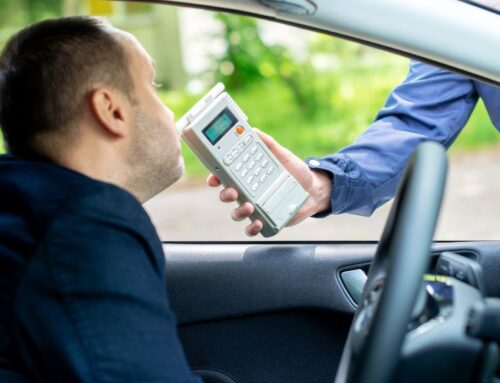Charges of Assault and Battery in Indiana
A person performing an action that intends to cause physical harm to a person is guilty of what the law calls assault or battery. If his actions were severe enough, a simple assault can become an aggravated battery. So how are assault, battery, and aggravated battery different?
Assault and Battery
Assault is usually defined as any intentional action that may cause a person to fear that he may be about to suffer physical harm. This means that a person may be guilty of assault even if he doesn’t perform the physical act of touching and harming someone.
It is for this reason that police officers are allowed to arrest someone if they have reason to believe that someone is about to be harmed, even before the physical act of harming takes place. The conscious decision of the defendant in intentionally assaulting the victim must then be proven by the prosecutor to have the defendant charged for assault. This means that a person does not need to complete the action to be charged with assault and battery.
A person only intending to act- intending to use a weapon against someone or intending to rape someone- can still be considered guilty of aggravated assault. However, this has to be differentiated from empty threats. A person is only charged with assault for actions that can lead to a person being harmed, not from words spoken about harming someone.
 Battery, on the other hand, is the physical action itself. This is when the offender has physically struck or offensively touched the victim. Once a person commits battery, the assault has been deemed completed.
Battery, on the other hand, is the physical action itself. This is when the offender has physically struck or offensively touched the victim. Once a person commits battery, the assault has been deemed completed.
Traditionally, assault and battery were seen as separate crimes, however, in modern-day law, both things are more often treated as the same thing, with one almost always accompanying the other.
If you have any questions regarding assault and battery, don’t hesitate to contact a criminal defense attorney at Wilson & Kinsman, LLC, an Elkhart, Indiana criminal defense law firm. Our defense lawyers are knowledgeable of criminal law and the penal code and are experienced in defending against criminal charges.
Have you been injured in an accident?
While recovering from personal injuries can take you years to recover, there is no recovery from the loss of a loved one due to another individual’s negligence. Here at Wilson & Kinsman, our wrongful death attorneys fight for justice to make sure the responsible party pays.
Simple Battery and Aggravated Battery
Simple battery and aggravated battery are differentiated by the severity of the action and the intent of the action. For instance, it is considered aggravated battery if a person attacks another with a weapon or if he did the battery to commit another crime like rape. An aggravated battery may also be described as such if the law deems the victim as worthy of special protection like in the case of the elderly.
Assault and battery cases can get very complicated, especially when intent comes into play and has to be disputed. So, if you are a defendant with battery and assault charges, be sure to contact one of our Elkhart, Indiana criminal defense attorneys to defend you.
Battery Types and Laws in Indiana
Battery can be classified as either a misdemeanor or a felony. If the victim wasn’t hurt or received only minor injuries, the act will be charged as a misdemeanor. However, the crime becomes a felony if there are certain victims and weapons involved or if the injuries inflicted are more severe. Felonious batteries are sorted into six levels, with Level 6 being the least serious to Level 1 being the most serious.
Battery Leading to Risk of Infection or Moderate Injury
Batteries leading to moderate injuries are Level 6 felonies. This also includes exposing a victim to bodily fluids that may contain infectious diseases including HIV, tuberculosis, or hepatitis, especially if the perpetrator knew of the risk of infection or it was done with reckless ignorance.
Battery Causing Serious Injury, Aggravated Battery, and Battery with a Deadly Weapon
According to Indiana state law, serious bodily harm involves:
- Unconsciousness,
- Permanent loss or impairment of a body part,
- Any injuries that can cause a significant risk of death,
- Serious and permanent disfigurement,
- Loss of a fetus,
- Extreme pain.
A battery that leads to any of these are Level 5 felonies, but, can be raised to a Level 3 aggravated battery felony if there was an intent to kill, cause disfigurement, or cause the loss of a fetus. A felony is raised to aggravated battery based on the intent, and not the injury inflicted.
Using a deadly weapon to commit battery is a Level 5 felony, regardless of the injuries caused. Deadly weapons include tasers, stun guns, biological weapons, firearms, animals, etc. If, however, the perpetrator intends to use deadly weapons to kill, he can be charged with voluntary manslaughter, a Level 2 felony.
Battery Against Protected Victims
Battery is also considered felonious if it is done against a victim under the protection of the state of Indiana. These include:
- Members of foster families,
- Pregnant women,
- Adults incapacitated by mental illness, addiction problems, dementia, etc.,
- A physically or mentally disabled person who is a dependent of the defendant,
- Children under the age of 14 if the defendant is at least 18 years old,
- On-duty public safety officials.
The level of the felony will depend on the severity of the action. But since these are people specifically protected by the state, it can be expected that the punishment for these will be more severe.
Domestic Battery
Domestic battery is battery against a family or household member which includes relatives, spouses, co-parents, people one has dated or has been in a sexual relationship with, and the minor children of any of them. Battery is always considered a felony if done against any of these people. The severity of the charge may also depend on the following factors:
- If the battery results in moderate to serious injuries,
- The perpetrator is at least 18 years old and was aware of the presence of a child under 16 years old who might able to see or hear the abuse,
- The defendant has a criminal record of domestic assault, domestic violence, sexual assault, or strangulation.
If you are in an assault and battery case or expect one to be imminent, don’t hesitate to get in touch with a criminal defense lawyer at Wilson & Kinsman, LLC today. We will help you build a strong defense for your felony charges.
Share This Story, Choose Your Platform!
Give us a call!
Testimonials
Read what our former clients have to say:







